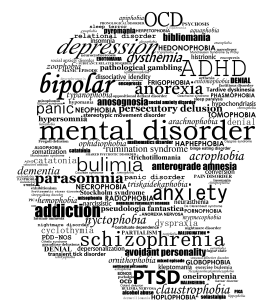The rate of Aboriginal and Torres Strait Islander peoples is double that of their non-Indigenous counterparts, while people in rural populations are twice as likely to take their own lives than their city counterparts.
Today, suicide remains the leading cause of death for Australians between the ages of 15 and 44.
This week is Men’s Health Week, and even though the number of males reaching out for mental health support is steadily rising, there is a crisis that we need to keep talking about.

This year’s nationwide Men’s Health Week, led by Western Sydney University (WSU), will see communities and organisations across Australia unite under the theme of ‘Connecting for Men’s Health’.
Held from June 14 – 20, the annual initiative will raise awareness for the health and wellbeing of men and boys by encouraging connections through family, community, culture, and mateship, and by highlighting essential health services.
During the month of June, members of the community will be encouraged to host or attend an event, share a positive message online about the men in their lives, or reconnect with their close mates.
‘A simple conversation between friends can be the start of something positive’
According to Dr Neil Hall from WSU’s Centre for Male Health, Men’s Health Week is an important time to reconnect and focus on the health of men and boys.
This week presents us with another opportunity to have an open conversation about a topic that many of us aren’t great at talking about: our mental health.
“Supporting men to achieve good health is something we can all work towards — a simple conversation between friends can be the start of something positive, so we’re encouraging everyone to get involved,” he said in a statement.
“It might be through hosting an event to create awareness, through to picking up the phone to a loved one, or sharing resources and information.”

“Our research has found that young men are starting to seek help and advice more freely but more needs to be done to support all men to reach out for help when they need it.”
This week’s initiative of connection promotes a culture that encourages open conversations about mental health, highlighting the resources and services available to men, and promoting self-care behaviour, including appropriate help-seeking.
Everyone can play a role in removing the shame that surrounds mental illness and communicating to our family, friends, and colleagues that it’s okay to have problems.
Crisis of men’s mental health
Men’s Health Week highlights there is an ongoing, increasing, and mostly silent crisis in the health and wellbeing of men and boys. Due to the lack of awareness, poor health education, and culturally conditioned behaviour patterns in their lives, the health and wellbeing of men and boys is a growing area of concern.
According to WSU, in Australia, men and boys experience significantly higher rates of addiction, violence, crime, and premature death in comparison to their female counterparts – and show significantly higher rates of death from suicide.
Depression is a high-risk factor for suicide and plays a contributing role to the big difference in suicide rates for men and women. On average, one in eight men will experience depression and one in five men will experience anxiety at some stage of their lives.

There are many social and socioeconomic factors that lead to the concerning nature of male mental health and wellbeing.
Within an industrialised society, such as Australia, males are known to avoid seeking help – particularly for mental health issues – and demonstrate toughness and self-reliance rather than displaying emotional vulnerability. A complex factor surrounding this is self-stigma and perceived stigma – both of which are evidently widespread in Australia and can be extremely debilitating.
Julie Lin, a trainer at Australian College of Community Services and Care, says women are just as responsible for supporting men with their health as men are.
“We need to stop placing labels especially placing shame upon men,” she said.
“Shame places a barrier that men find hard to ignore and we need to encourage these difficult conversations.”
“We should be saying to our partners, our fathers, our sons and brothers, have you been looking after yourself? Are you okay?”
Lin says the mental health crisis in men is rising each year and is affecting how men perceive their roles in communities.
“It is time to stand together,” Lin said.
Beyond Blue emphasises men are less likely to seek professional help for issues, particularly those of an emotional nature. Men are constantly told directly and indirectly that talking about their feelings is somehow weak. This can not only be harmful for men themselves, but for the people around them too.

According to Headspace, young Australian males have the lowest rates of help-seeking and the lowest rates of awareness of available mental health services.
This is particularly evident for young same sex attracted men, those from Aboriginal or Torres Strait Islander backgrounds, and those living in rural and isolated areas.
Local communities are crucial support networks
While there are plenty of medical and health professional options available to men, some prefer the quieter approach to their wellbeing and mental health.
This has seen an increase in grassroot community groups that are more social and less clinical in helping men with their mental health issues.
The Men’s Health Week initiative will spotlight local men’s groups, including Men’s Walk & Talk, Men’s Table, and Men’s Sheds, who at the grassroots level provide a range of important support services to men and their families.
Some nationwide groups for men to connect:
- Mr Perfect runs 70 free barbecues every month across Australia to get men to talk to each other
- Mates In Construction targets men working in construction, building, and the energy sectors
- The Men’s Table has meetings around the country that creates a sense of belonging, community, peer support and companionship
- Grab Life By The Balls run laid-back events for men to connect, hang out, and be themselves with regular coffee, BBQ, beers, and burger nights
- The Men’s Shed has almost 1,000 sheds and is recognised as one of Australia’s largest male-based community development organisations
[/dt_vc_list]
Dr Emma George from the Centre for Male Health said these organisations play a crucial role in improving health outcomes for men.
“This year’s initiative will highlight the important role men’s support networks can play, and the practical steps men can take towards achieving better mental and physical health,” George said in a statement.
“By creating environments in which men feel supported and empowered, we can encourage open conversations about mental and physical health, and the importance of connecting with health services.”
Look out for your mates
Sometimes it can be difficult for some men to express their feelings. Some of us might feel embarrassed or worried that we’ll be seen as weak. Some of us think we don’t have anyone to talk to. And some of us just don’t know where to start.
Men can get a lot of support and connection by spending time with their mates, so it’s important to check-in on a mate if you notice they are not doing so well.

Touching base and staying connected is something we can all do. Just checking-in can save a life.
What you might notice if your mate or partner doesn’t seem okay:
- He isn’t his normal self of late
- Seems to be down, lacking energy and motivation
- Isn’t enjoying the things he normally does
- Is withdrawing from friends, family, and normal activities
- Is engaging in risk taking behaviour such as increased alcohol or other drug use
Starting a conversation to check-in on a mate can be daunting, but a simple conversation can help make someone feel less alone, more connected, and more supported. Sometimes all it takes to break down the barriers is for you start the conversation with your mate and ask if they’re doing okay.
Men often prefer to open-up and speak side-by-side, rather than face-to-face. You may find it is more useful to do an activity that doesn’t involve just face-to-face communication, such as going for a drive, kicking the footy, walking, or home maintenance jobs.
If you need any tips on how to start the conversation, Beyond Blue’s “Looking out for your mates” describes how you can start the conversation and get support for your mate.
Men’s Health Week is your opportunity to make a positive difference in the lives of men and boys.
Need to talk to someone?
Don’t go it alone. Please reach out for help.
- Lifeline on 13 11 14
- Kids Helpline on 1800 551 800
- MensLine Australia on 1300 789 978
- Suicide Call Back Service on 1300 659 467
- Beyond Blue on 1300 224 636
- Headspace on 1800 650 890
- ReachOut at reachout.com
[/dt_vc_list]






